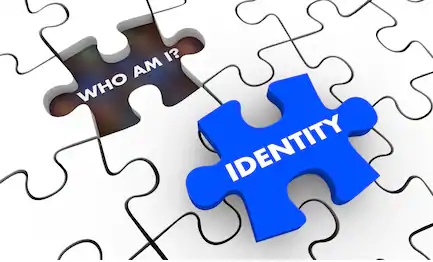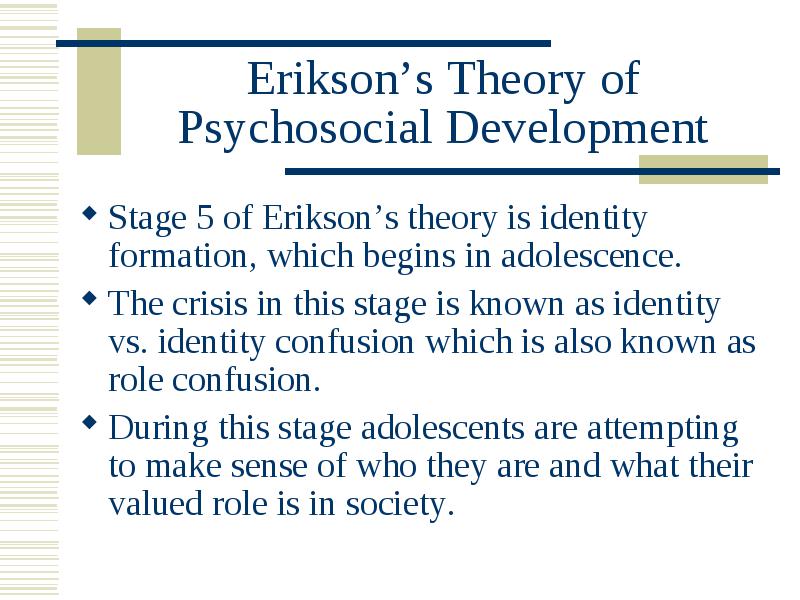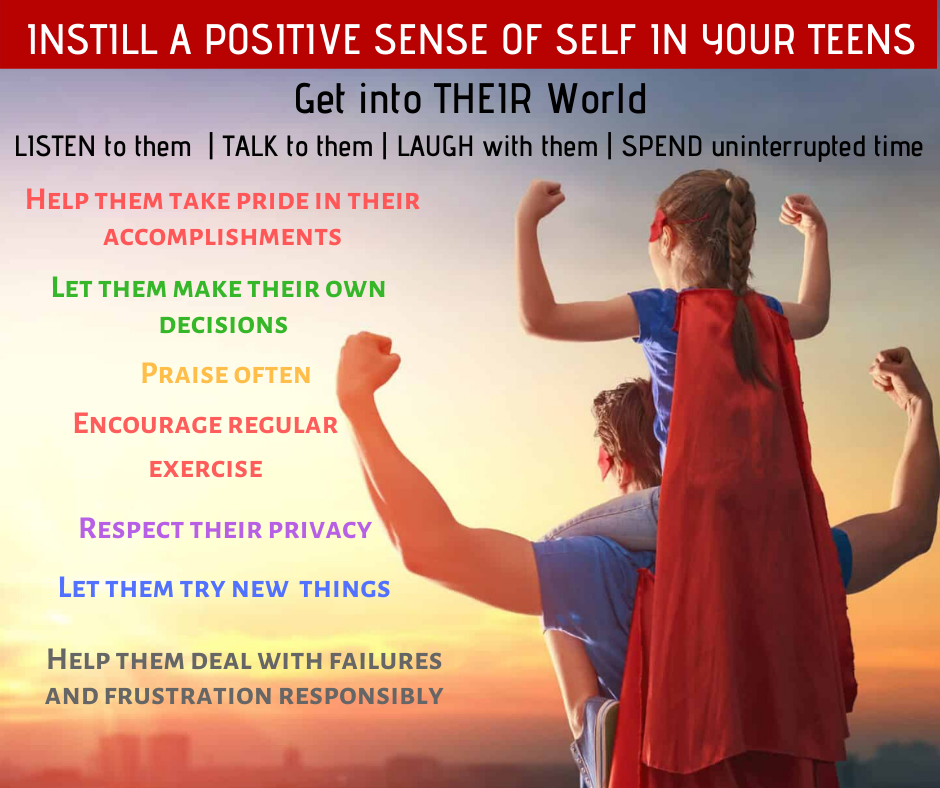Teen self-identity forms the basis of self-esteem. Here’s how and why.
Identity for teens refers to their sense of self as individuals and how they define themselves in terms of values, beliefs and their roles in the world. For teens, thinking about their identity is a new first-time exploration. They are starting to wonder who they are and why. In other words they are developing a perception of themselves.

A positive teen self-identity becomes vital as it forms the basis of self esteem and it also shapes a teen’s sense of belonging not just during their teen years but for most of their adult life. A feeling that one belongs is most important in feeling valued in life. A failure to establish identity in adolescence leads to role confusion and a weak sense of self later in life.
Teenage years is also the time when major bodily changes occur along with hormonal changes. Also, in these years, the way we see ourselves changes in response to peers, family & school, among other social environments. Some teens are able to learn to discover their identity in a healthy and age-appropriate way. However, some teens experience lack of identity and face identity crisis, where they struggle with feelings of self-doubt and unworthiness..in other words it is called identity versus role confusion. This could be due to big changes or stressors in life.

As a way to navigate stress and confusion that comes with identity development, some teens turn to outside influences to help them define their identity. Some common ways could be idolizing/identifying with a famous person or engaging in addictive behaviours like smoking, drinking, drugs and other thrill seeking activities. Sometimes these risky behaviours could potentially have a negative and lasting effect on their lives.
The teenage years are a volatile phase during which moods, behaviours and relationships can change every day. This is the time when teens most struggle with low self-esteem. Parents are often stressed and overwhelmed and may not know how to help them.

According to researcher Susan Harter,SELF-CONCEPT is domain specific. Over all self esteem is rooted in 8 distinct areas.
1.Athletic Competance
2.Scholastic Competance
3.Behavioral Conduct
4.Social Acceptance
5.Close Friendship
6.Romantic Appeal
7.Job satisfaction
8.Physical Attractiveness
Based on this, here are ways parents can influence how adolescents think about themselves by instilling a positive sense of self in them.
1.Encourage physical exercise: Teen self-concept is most strongly linked to their sense of physical attractiveness and body image. Engaging in exercise helps them get in touch with their body and makes them feel more empowered.
2.Support them by emphasizing their strengths: Depending on their personal values and priorities, adolescents can be helped to identify with their talents and interests, so that they can capitalize on specific skills.
3.Avoid social comparision: Teens sense an “imaginary audience”(everyone is looking at me).They are highly sensitized to who they are, relative to everyone around them.Also, peer opinion is of utmost importance for them. It goes a long way in boosting them if parents understand and respect this.
4.Helping them focus on SELF-COMPASSION: When teens are taught to be okay with their flaws and treat self with kindness, openness and acceptance, they learn to love and appreciate themselves.This is key because ‘making friends with themselves’ would help them extend the same kindness to others which would strengthen their friendships.
5.Help them to think beyond themselves too: When adolescents are encouraged to help others especially strangers or when they contribute to a larger cause, they feel better about themselves.
6.Some other ways to help them feel better about themselves would be to appreciate them often, encouraging them to develop a positive approach for establishing boundaries and consequences ,viewing mistakes as learning opportunities, teaching them to accept things about themselves that they cannot change and lastly, helping them to set practical and realistic goals and accomplish them.
Sometimes parents are stressed and overwhelmed and may not know how to help them.
Often times, as a parent you may need to seek professional counseling for your teen to address behavioural problems, emotional issues, substance abuse, self harm and risky sexual behaviours.
A trained professional can assess the issues and help your teen help themselves.
Unleash Possibilities is your space to be open, honest and get support.
To know more, reach out to us at
+91 9019008494
Mondays to Saturdays 9 am to 7 pm
Related Posts
Everything you need to know about Self-Love.
Self-love means taking care of your own needs and not sacrificing your own...
Teen self-identity forms the basis of self-esteem. Here’s how and why.
Identity for teens refers to their sense of self as individuals...
Your inner world creates your outer world:An Insight
Thoughts pass through the mind all the time. On average each one of us have...




